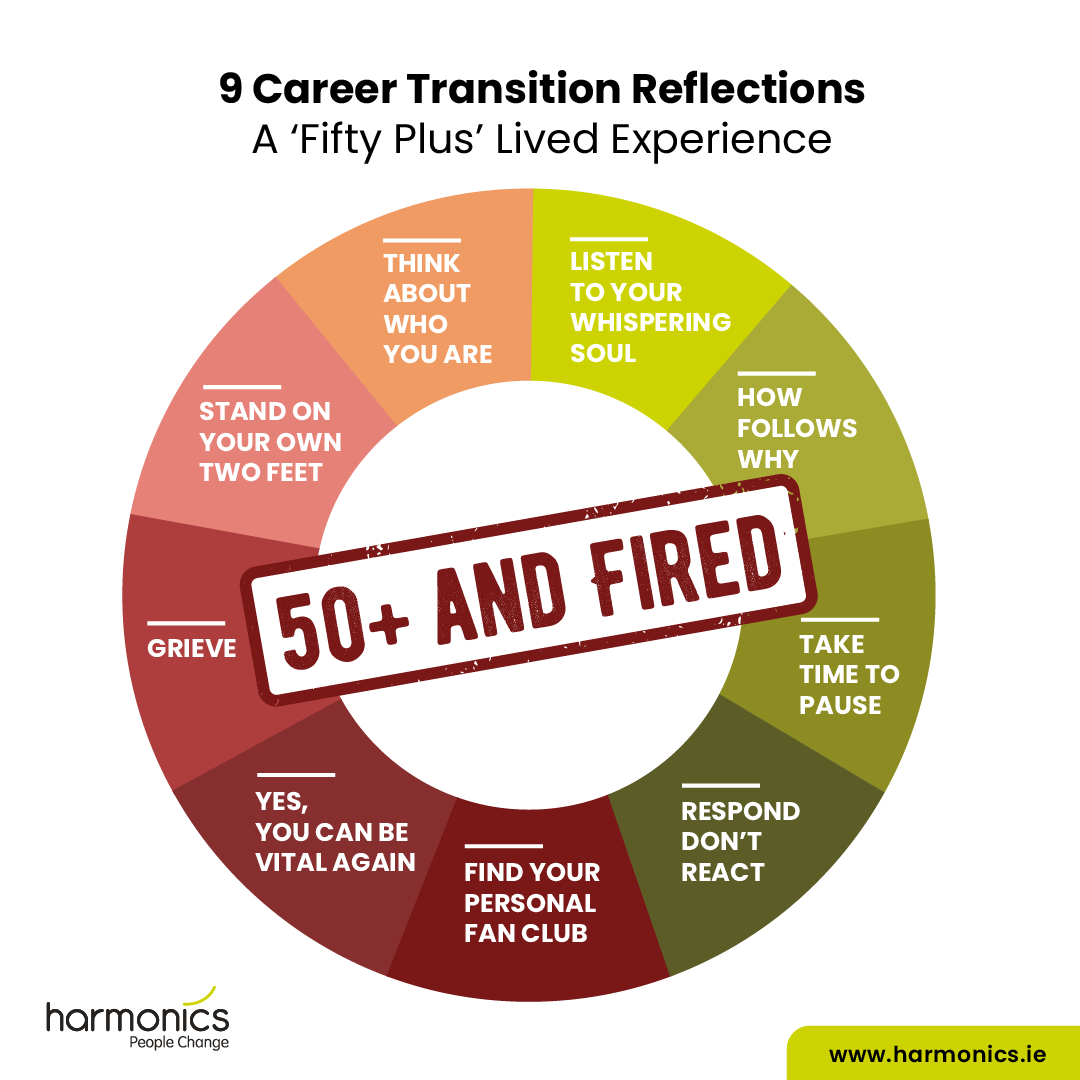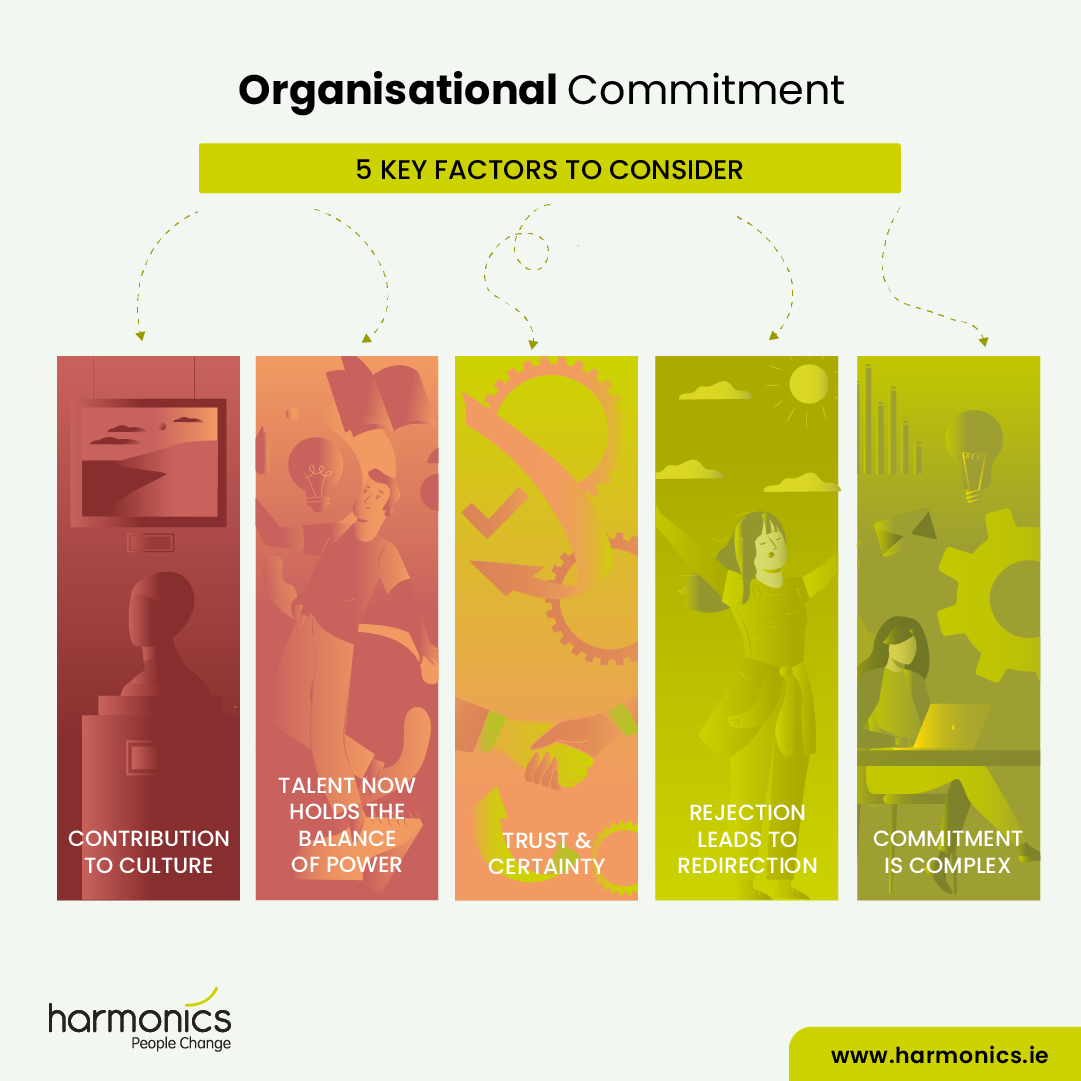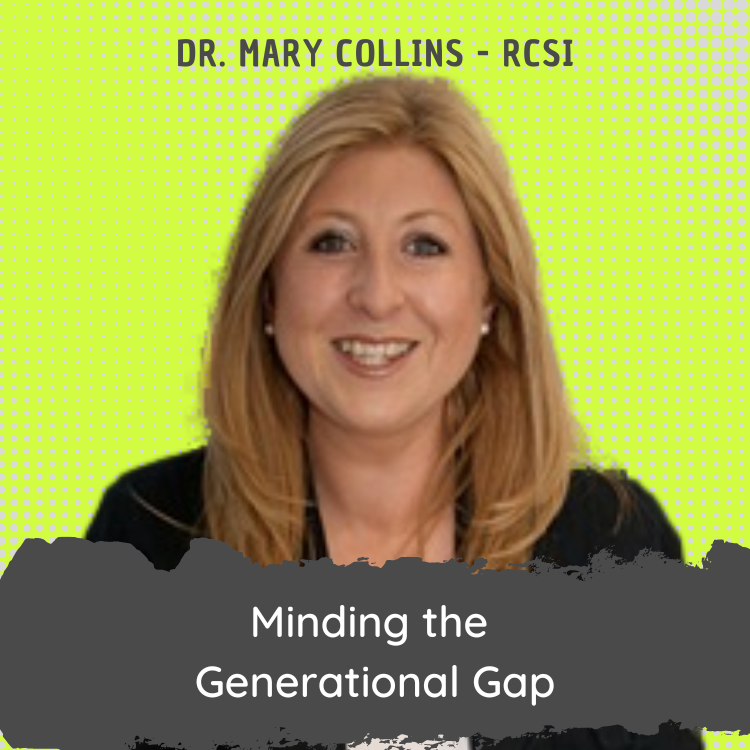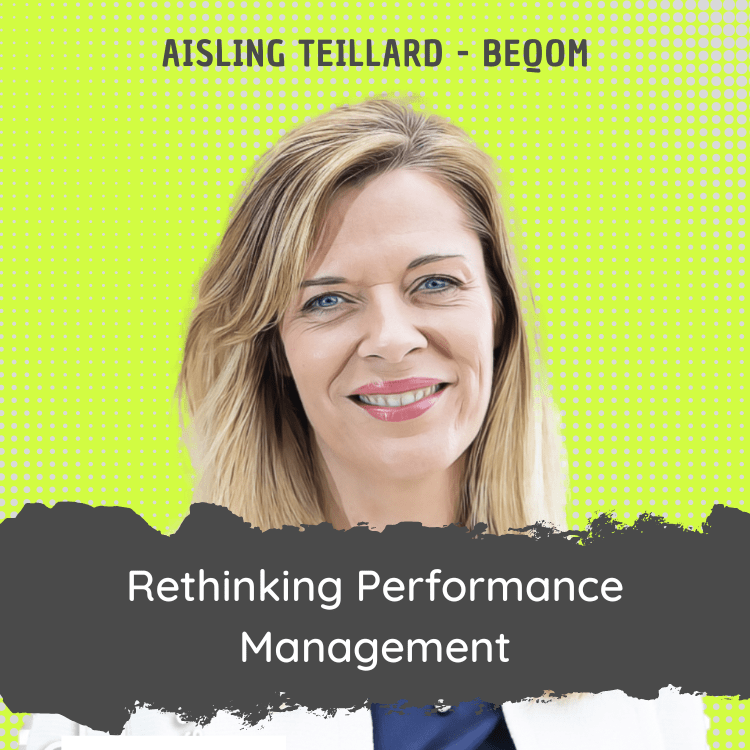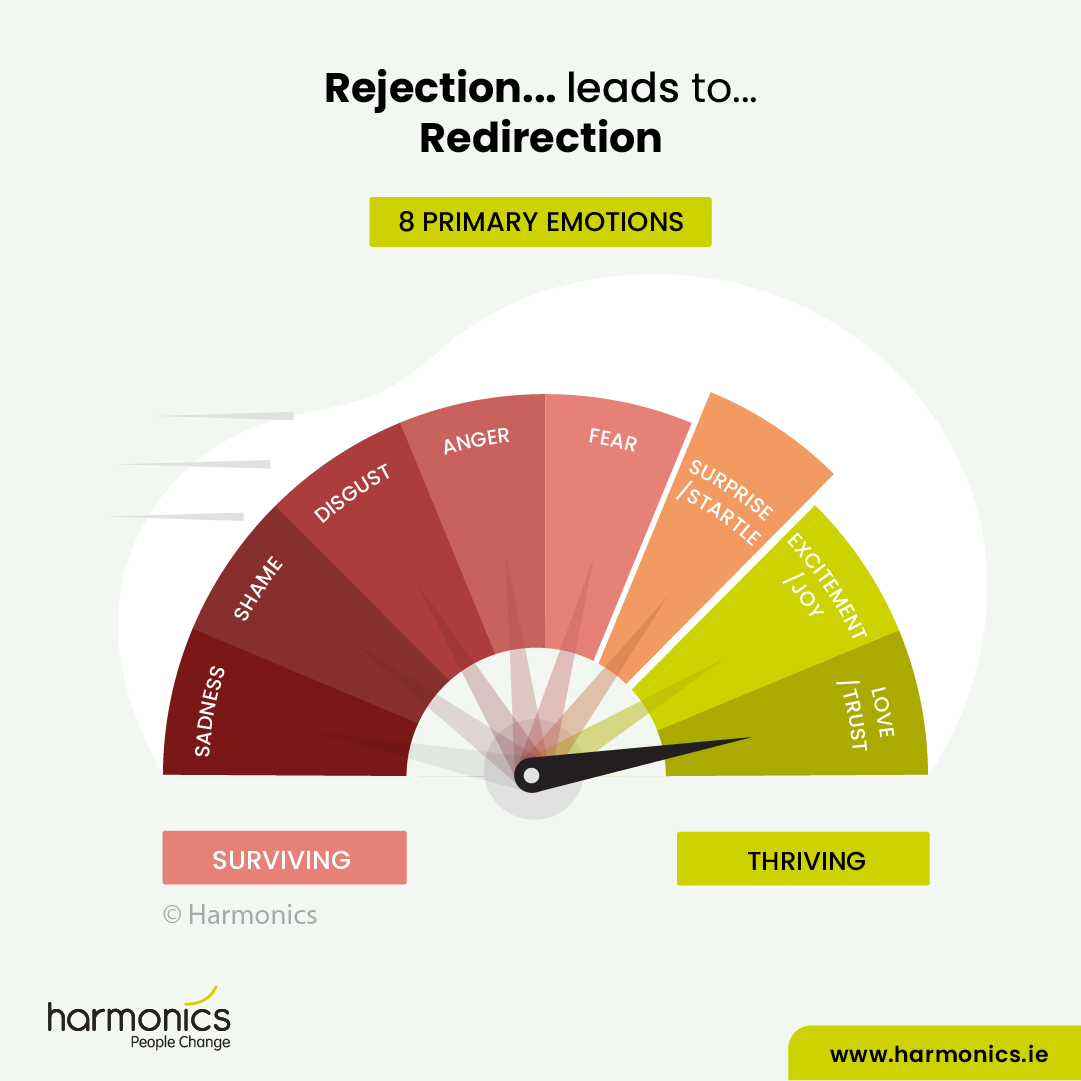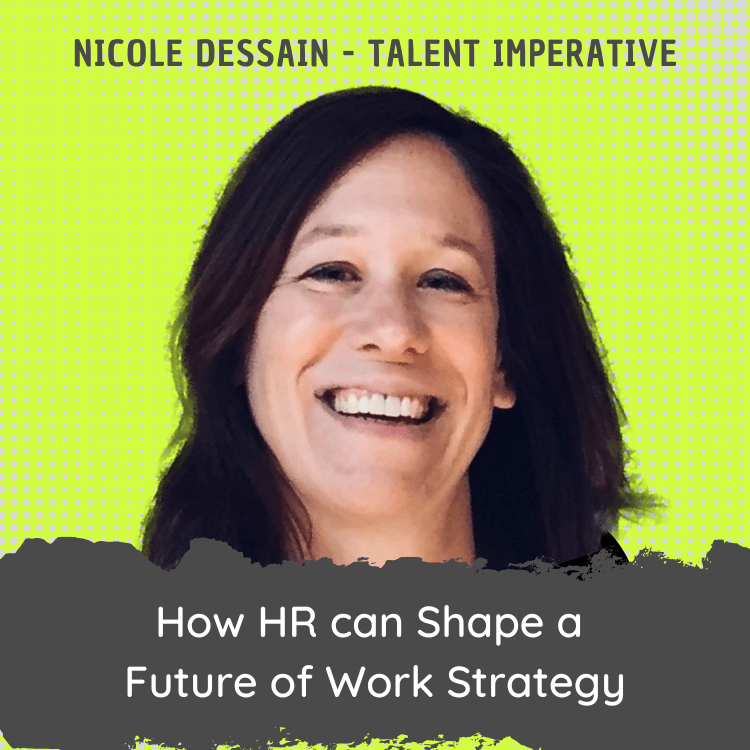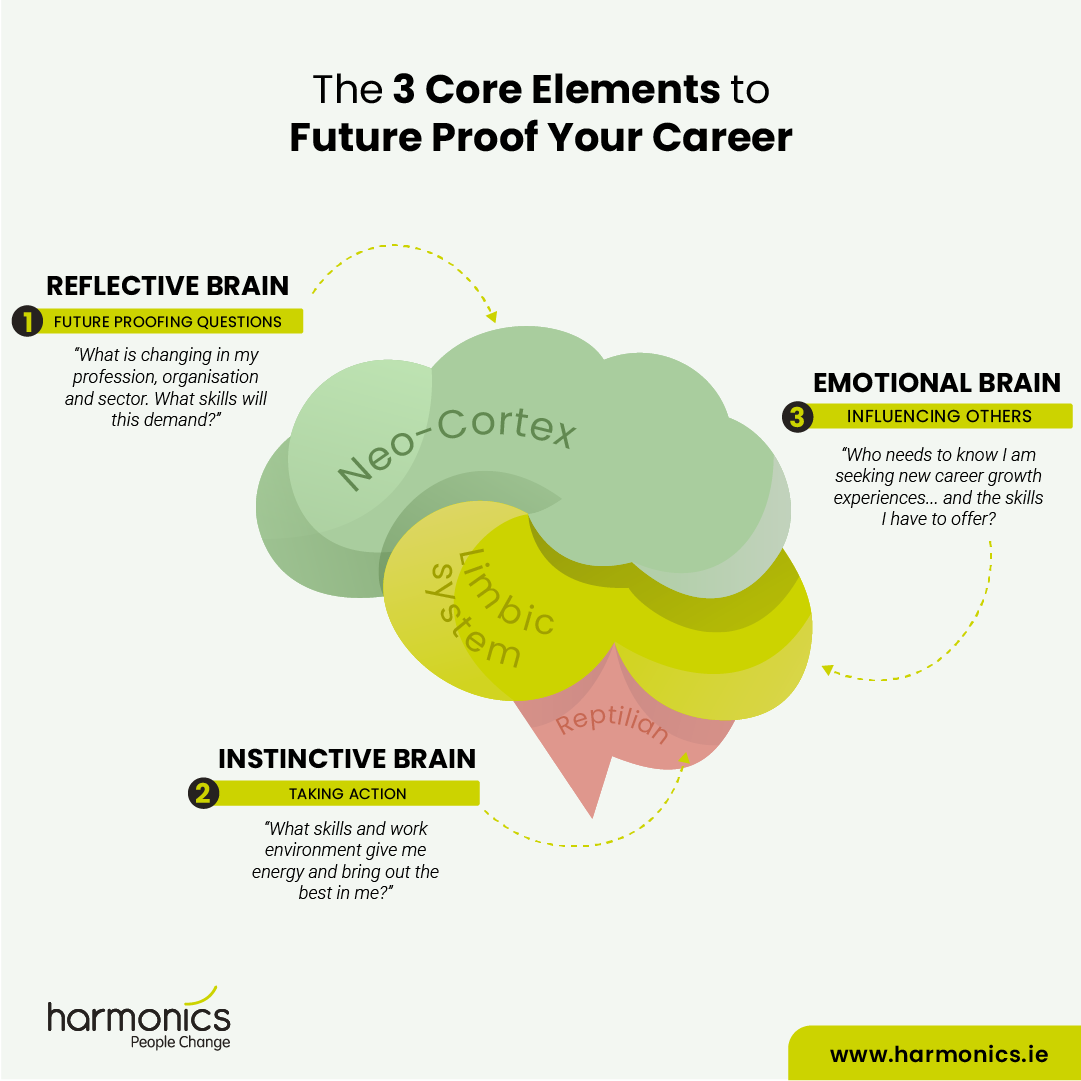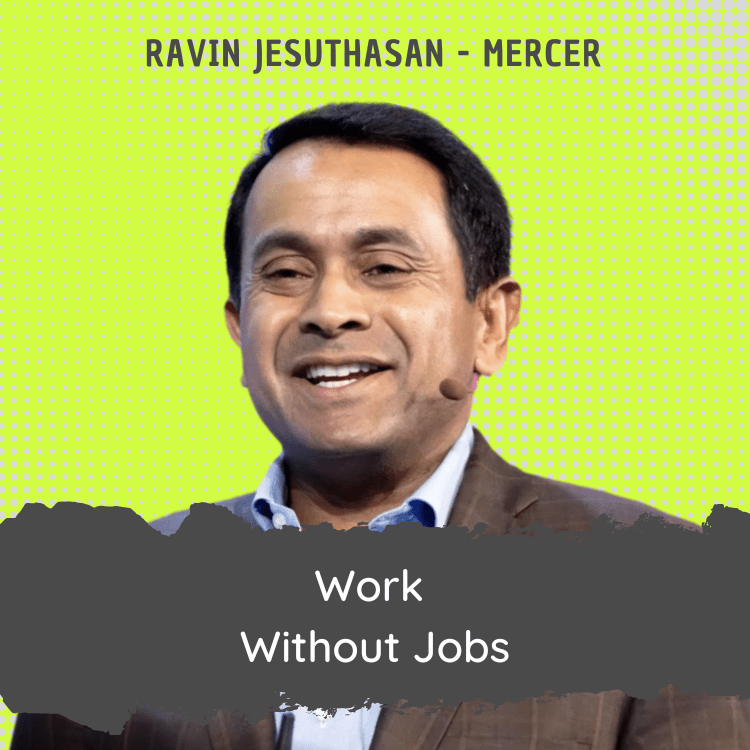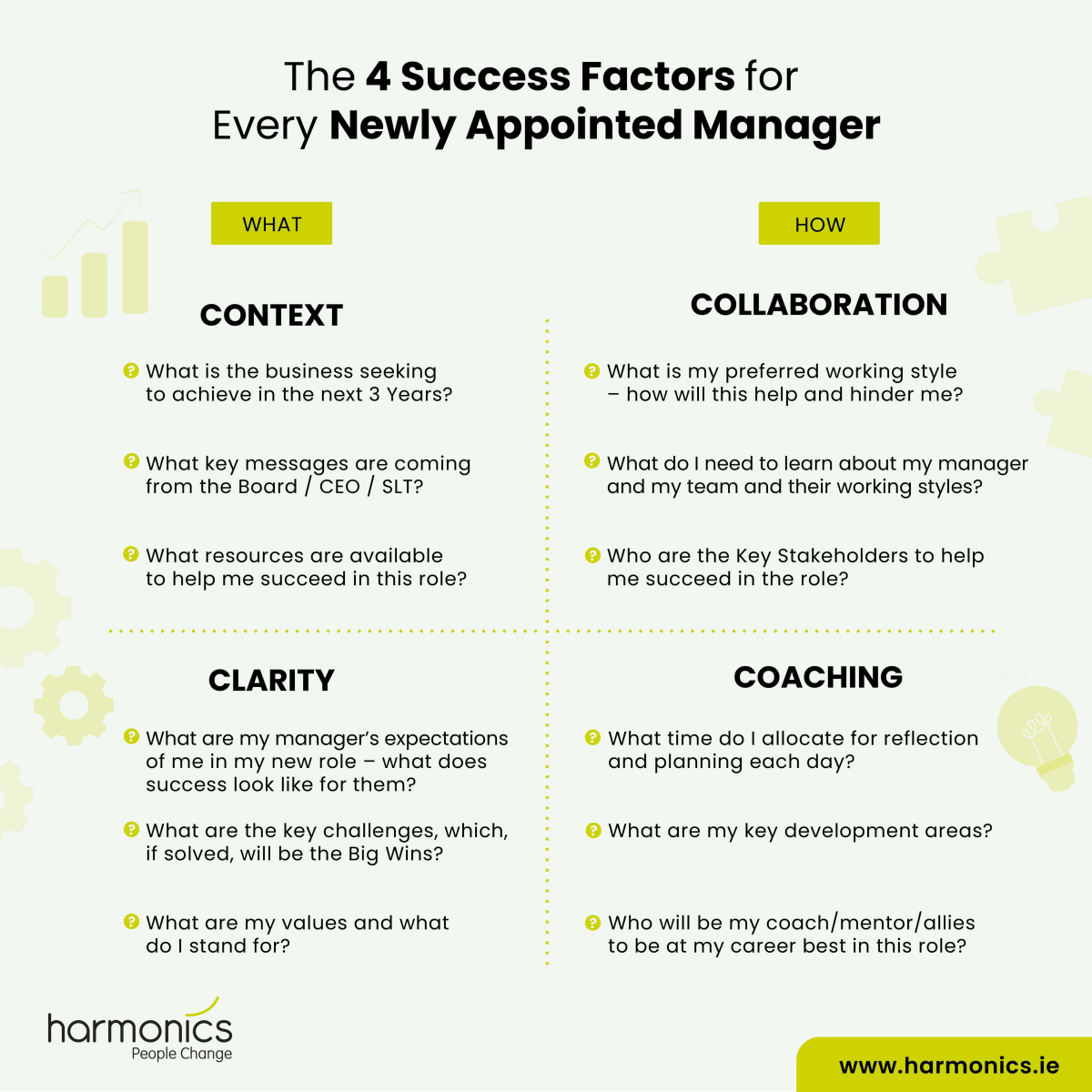If you are 50 plus, this article will be the best investment of your time today. It is raw, uncensored and truly courageous, it’s incredibly well written. Having worked with Mark on his career transition journey – he has come out and said what many fear to say publicly – huge respect Mark Cahalane and continued success on your new journey. – John Fitzgerald MD Harmonics
During my career, my role was made redundant twice. Evidence of how fickle corporate life can be. It’s a horrible and confusing experience. While that’s true for any of us, at a certain life stage it can have a crippling impact if we allow it. For those of us who are part of Generation X, the fear of losing our job can be worse than the reality of actually losing it. In so many instances our role is our identity, and we surely can’t survive without that, or can we?
For many of us, who are in our late forties and early fifties, (and my perspective is a male one), work becomes intrinsically linked to our sense of self. It’s an identity we want to hold on to at all costs.
The fear of loss of status and identity can be the start of an unpleasant and searching inner dialogue. The financial worries, questions of self-worth and shame that can accompany actual redundancy are very real and frequently stark. Your inner and outer landscape can become a deeply lonely place.
Please hang up your identity on the way out.
I well remember the day I was told my role no longer existed. It felt like I was being asked to hang up my outer skin in reception on my way out the door. My old identity was gone in an instant left hanging in the office along with my personal purpose and my plans. My responsive fear almost took on a spectral life form. Shadowing me, my constant unwelcome companion. This was a fear that went to my core along with unhealthy doses of illogical shame. Any recruiter I met could smell fear a mile away.
It is possible to get beyond this and in better shape than you went into it.
Nine thoughts from personal experience on how to shift forwards.
GRIEVE
There’s a process of grief you must go through. Your mind plays tricks. It feels like you are in some sort of organisational space time continuum. You think you ought to be somewhere. In fact, you have to be precisely nowhere – and at any time you choose. Irrelevant and lost. But here is the curious thing. Adversity can in fact be opportunity in disguise. You just have to shift your gaze to notice it. But it follows a period of loss you have to allow take place.
RESPOND DON’T REACT
Over time, I noticed that all my doubts lead to one core question. Will I ever be corporately relevant again and how do I get to be? Passing offices, I would think about how fortunate the people inside were. I asked myself over and over, how do I get into the room again? It turns out that this was the wrong question. The real question, I needed to allow emerge was what do I want to do with my life now? What has meaning and purpose to me, not others, just me! Sure, there was plenty of advice available. Some good, some simply terrible. It sounds like a cliché but the people you think will help you don’t. Those you least expect do. People you don’t even know reach out to you and offer support. A compelling insight came to me early on. “Don’t react, respond”. What does that mean? Well, for me, it meant yes, recognise my financial realities but think through carefully what I really wanted to do. This was a time to listen to that whispering inner voice… that knows us best of all.
LISTEN TO YOUR WHISPERING SOUL
If I were to offer a core insight, it is this. When adversity comes calling, do not keep pushing that inner voice away. Behind your fear is your own inner voice and it’s a great advisor. Your inner essence is the most loving and inspirational voice you will ever hear. Listen to it and give it space. For me, that voice led me back into education. Ultimately, evolving my professional life into new but not totally unrelated areas to my career of origin. My chosen area being team performance coaching, leadership, and stakeholder engagement. I now work with CEO’s and leadership teams across a range of strategic issues and team challenges. It took a while to get here. It started with a pause and time to recalibrate.
TAKE TIME TO PAUSE (IF YOU CAN)
To have any hope of doing this it was incredibly important for me to get out of my own way. To banish the “I should” and “I must” “I can’t” thoughts and fears. Slowing down a little. I took the time to meet someone new and important, myself. Rather than following the impulses of the person I thought I was, I paused to understand who I had become. This is a process that also benefits the leaders and teams I work with today. Even the most senior leaders have fears and very few safe spaces to voice them.
THINK ABOUT WHO YOU ARE
Thinking about my values, my beliefs, my interests, and motivations was highly instructive. As was the time taken to assess my career to date and what I had gotten out of it so far. Not existential questions of happiness. More a practical and honest assessment of my working life so far. The end result was evolution not revolution. I was very fortunate that my former employer paid for coaching. I used those sessions well. In fact, I couldn’t recommend having a challenging coaching relationship highly enough.
STAND ON YOUR OWN TWO FEET
A big lesson for me was the loss of the corporate brand behind me. I know many people choose to go back into almost identical employment post redundancy. The imperative is to leap back into that safe space. I chose not to do this as I didn’t think I wanted to continue on an identical path. I wanted to try my own thing for now. It’s a curious thing to adjust to loosing corporate back up. When you are out on your own you are really out on your own. Corporate identity gone; your calls are no longer going to be automatically returned. So, you have to get over yourself a bit and become a lot braver, at least I did. Braver about how you get to meet people and how you hustle a bit. That was a huge challenge for me.
FIND YOUR PERSONAL FAN CLUB
Surrounding yourself with advocates is also important. Those amazing people who believe in you and will support you through thick and thin. But realistically so, not blindly so. They are the unsung heroes of my experience. They helped me put shape on what I wanted to do. They helped me figure out was there any demand for my coaching and consultancy offer. Mine is a pragmatic and challenging approach to leadership development. Through my experience there is a certain robustness and directness at the core of my offer. Senior industry experience and close relationships with demanding CEOs has given me valuable insight and perspectives. Theirs is a complex world where superlative performance is the expectation. Not everyone welcomes that expectation in a professional relationship.
HOW FOLLOWS WHY
It important to recognise that with grey hairs comes experience, insight, and the courage of your convictions. Maybe you have less to lose. I have been more honest with myself and those around me in the past three years than I have been in the last thirty. In my case, my experience is in the corporate world. I am working with individual and corporate clients who seem to like robust, unencumbered insights. But ones rooted in valuable experience with great companies. That’s the starting point. I had a very clear idea of what I wanted to do. There were strands of my career I wanted to draw together. For me, it was about doing more meaningful work where my experience could be used to help others. I don’t have all the answers by any means. I am on a journey for sure, but at least I know that I am on the right path for me. I have my ‘why’ and in general, the ‘how’ seems to follow.
YES, YOU CAN BE VITAL AGAIN
So, to those of you who see redundancy as the end of the road at 50, or any stage, may I humbly suggest that it’s not. It is possible to become vital and purposeful again. It’s also possible to become a better version of yourself. Assured in who you are, with more depth and experience to offer, but hopefully with the humility to learn from a most unpleasant experience. You just have to be brave enough to listen to yourself and get out of your own way. You may also need the help of a leadership whisperer to help you on your way.
About Mark
Mark Cahalane is an expert in strategic counsel, reputation management, stakeholder engagement, leadership coaching and resolving high performance challenges across leadership teams. At CRH plc, the €29 billion FTSE 100 group, he established and led the Corporate Affairs function and operations. Reporting to the Group Chief Executive and serving on the Group Management Team, he guided the organisation’s engagement with all stakeholders, telling a compelling engagement story to the wider world as part of a focused strategy to drive performance and value creation.
Previously, Mark had established and led the EMEA corporate consultancy practice of Edelman, the world’s largest communications consultancy, across 18 markets.
He has acted as change advisor to Chief Executives and leaders in high profile organisations including Paddy Power, Ryanair, and GE.
Mark has built a track record of high performance and success gained through a deep experience of the unique leadership, strategic and operational challenges which large scale, complex organisations present. He is especially familiar with the multi-dimensional performance lenses through which Chief Executives and Senior Leadership Teams are required to view the organisation in order to deliver strategic execution, performance and growth.

